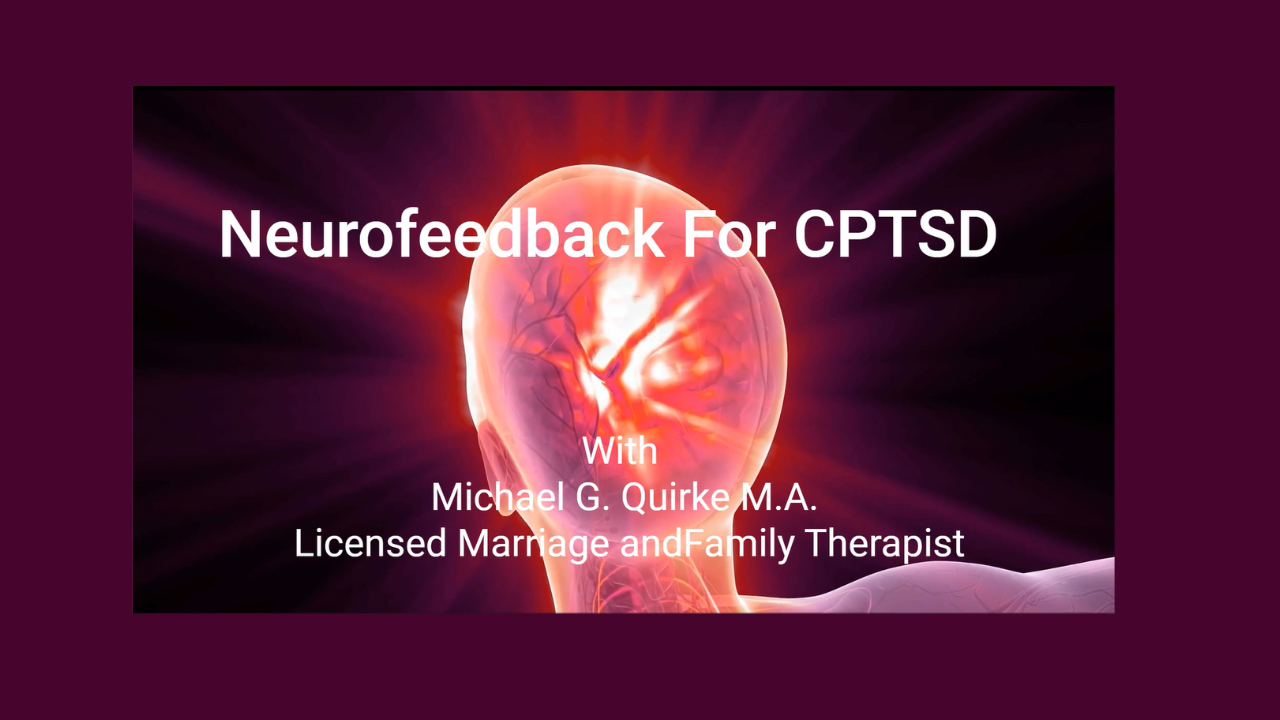Many types of clients can benefit from neurofeedback brain training. The other day, a therapist colleague reached out to me. She asked a question that I frequently get from other healthcare providers. Not only had  she heard and read about neurofeedback, but she also heard reports from her patients about how neurofeedback helped them. and
she heard and read about neurofeedback, but she also heard reports from her patients about how neurofeedback helped them. and
She wondered if she should refer her psychotherapy client to me for adjunct neurofeedback training.”I know that neurofeedback can help with a whole range of things, but who can really be helped?” Because this question is such a common one, I thought it might make a good blog post!
“Who Can Benefit From Neurofeedback Training?”
Neurofeedback trains the autonomic nervous system and the central nervous system. Other forms of biofeedback don’t train both. So, there are a lot of symptoms that neurofeedback (EEG biofeedback) can help with.
To prepare from my talk with my colleague, I jotted down some thoughts about my clinical work with neurofeedback therapy.
My practice skews in a certain directions, because I rarely see someone who does not have a complex trauma/developmental trauma history. While not all my clients identify as being in this population, often times the intake assessment and history reveal it.
Despite this fact, I do work with clients who come from stable, happy, loving homes. And when I do, I’m frequently amazed at how fast neurofeedback treatment is!
For example, last year, I worked with a middle aged adult male who had no early trauma history. He had no history of drug and alcohol abuse. “P” referred to himself as “a fitness freak” and had kept up a daily meditation practice for almost 8 years. Some mild anxiety symptoms bothered him, but fundamentally, I thought of him as just a “pure ADHD case”. Essentially, there was no co-morbity.
“P.” did neurofeedback therapy for 3 months and he was able to accomplish all his treatment goals in that time. The benefits for neurofeedback training appeared instantly. During the first few minutes of our first session, he could sense his anxiety dropping and his mental focus sharpening.
“It’s like someone put an oxygen mask on me and I could just relax.”
As our work continued, his anxiety symptoms left and his ADHD symptoms resolved quickly. He was what I call “one of my super-responders” in neurofeedback therapy.
When Do I Think a Client Can Benefit From Neurofeedback?
Here are some of the factors I consider:
- THE CLIENT HAS EXECUTIVE FUNCTIONING DEFICITS– These deficits span a range of clinical presentation including anxiety disorders, ADHD, mood disorders and more.
- THE CLIENT HAS CHRONIC AROUSAL DYSREGULATION PROBLEMS. These are typically complex trauma/ neglect cases, although their develpmental trauma history may be overlooked.
In my experience many clients who struggle with chronic treatment -resistant mood and anxiety disorders are suffering with symptoms that stem from early developmental trauma. In fact, the reason I offer neurofeedback as a treatment modality is because of how I have seen some clients struggle.
What do I mean? I have worked with many adults and kids who do a lot to regulate their arousal. These clients meditate, they exercise, they do therapy, but they are still doing what I call “fighting their physiology.” They have nervous systems that are well practiced in being over-aroused, under-aroused or both. It’s my desire to help these very clients that led me to neurofeedback.
But… These Are Not The Only Type Of Patients That Can Benefit From Neurofeedback Training.
It can also help:
- THE CLIENT HAS TROUBLE WITH OTHER MODALITIES. Some clients do not benefit from other therapy modalities. They don’t want to-or cannot-talk about what is troubling them. Behavioral interventions don’t benefit them, or they flat out won’t do them. Or, the client is simply too dysregulated to learn skills. They don’t like DBT, they don’t like CBT. The psychiatric drugs they are taking don’t help them or cause them awful side effects. Or, they prefer to avoid psychiatric drugs all together. For example, recently I began working with a 16 year old anorexic girl. Bulimia plagues her and she self harms. This client has already had multiple hospitalizations and multiple engagements with intensive outpatient programs and partial hospitalization.
She describes her other types of therapy are “nightmares” for her because she doesn’t want to talk anymore about problems. Neurofeedback serves her by giving her a break from dwelling on all her problems.
Because her other treatments are “making her talk” about things that trigger her trauma she dreads them. But she enjoys the neurofeedback and describes it as making her feel “calm and satisfied”. My hope is that if we can get her nervous system more regulated, she will be more able to more fully engage with her other providers.
Who else might be a great candidate for neurofeedback?
- THE CLIENT IS STRUGGLING TO ATTAIN STAGE 1 TRAUMA TREATMENT GOALS. What does this look like? Well it could be that the client is dissociative. Or perhaps the client has too much arousal or too little and so they struggle to stay in their window of tolerance.There are complex ptsd clients whom I have work with using EMDR, Sensorimotor Psychotherapy, etc. These are clients with whom I’ve worked with for years, and they have made little or no sustained progress towards being “in their window of tolerance”. They rarely if ever feel “resourced.” For those clients, I think of neurofeedback.
And also
- The Client Has Health Issues That Are Exacerbated By Stress. Fibromyalgia, chronic fatigue, migraines, chronic pain.
Neurofeedback Has Also Been Pivotal For Clients Of Mine Who’ve Had:
- Panic Attacks
- Depression- and treatment resistant depression
- Chronic Anxiety
- Dissociation
- Sleep problems
- Physical, Verbal and Emotional Impulsivity
- Somatic symptoms: i.e.. Pain, GI problems, Sleep disruption
- Insecure, avoidant or disorganized attachment that seems rigid and unresponsive to other interventions.
Would you like to learn more about my approach to neurofeedback? If so, please contact me or read more by clicking on the link.
These are my thoughts for now! Hope this has been helpful.



